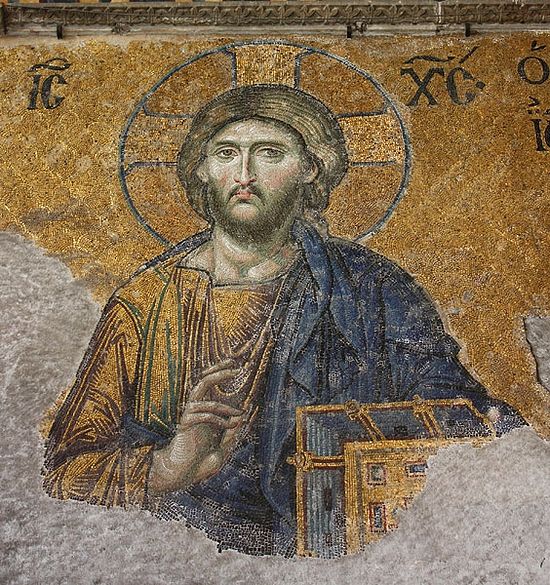 Our Lord Jesus Christ is without question God above all creatures. His Divine nature sufficiently manifested itself in the deeds that nobody except Him was able to do: to resurrect the dead, to cast out demons, to have power over the matter of the created world… Yet, all the same, Jesus was a real person and not a spirit.
Our Lord Jesus Christ is without question God above all creatures. His Divine nature sufficiently manifested itself in the deeds that nobody except Him was able to do: to resurrect the dead, to cast out demons, to have power over the matter of the created world… Yet, all the same, Jesus was a real person and not a spirit.
What kind of person was He, then?
Inherent to Jesus was that openness and vulnerability of soul that can be observed—to a much lesser extent, of course—in people who are more or less pure or who are striving to acquire purity. Our Lord was brave but without insolence, generous without boasting, and compassionate without being sentimental. We can observe in Him that moral measure, that “golden mean”, which is sought by all who seek pure virtue. However, He is still a person. Not only an ideal Person but an ordinary person, too. From the physical point of view, such things as tiredness, hunger, pain, as well as being satisfied, experiencing the joy of physical activity and the sweetness of rest were all and known to Him. Psychologically, He experienced everything that a human being experiences—everything but sin.
This phrase “everything but sin” puts a strain on our brain and turns our inner experiences upside down. For sin has taken such deep root in us that, without fear of contradiction, we can say that we are unable to imagine what it is like to be “without sin”. The whole of human activity is poisoned by sin; the unforgettable writer Nicholai Gogol is a hundred times right when he tells us how it grieves him not to see “any good in goodness”.
An encounter with sinlessness is only possible in Christ. We are healed and fed by Christ, however utilitarian and crude this might sound. But this is how it should be. It is not sufficient to admire Christ from a distance, acknowledging His “contribution to moral teaching”. Such “distant admiration” and acknowledgement of his achievements are simply genuine nonsense dressed up as “spirituality”. It is indeed necessary to be fed by Christ, for He is the manna that came down from heaven. It is necessary to be healed by Him, as He is the only effective medical dressing for the ulcers that cover our souls.
Nevertheless I want to talk, albeit partially, about what a man called Jesus actually felt when He was living on this earth—what worried Him, what surrounded Him, and what moral pressures were brought to bear upon His sinless soul. He was lonely. He was persecuted and embattled by people’s intrigues. He was a victim well before His death. He was familiar with pain, a fact which makes Him very close to us and so very needed by us. For we too can be surrounded by a thick cloud of misunderstanding. We too feel scared, experience pain, and know that we shall die...
From the moment He began to teach and preach, they continually attempted to find ways to kill Him. The Gospel is full of phrases such as “they sought to kill Him” (Jn 5.16); “They sought all the more to kill Him” (Jn 5.18); “They sought to take Him” (Jn 7.30); “Then the Jews took up stones again to stone Him” (Jn 10.31); “Why do you seek to kill Me?” (Jn 7.19). These and other similar expressions convey the true nature of those unforgettable events; namely, the hunting down of the Sinless One, looking for an opportunity to shed His blood.
The three short years He spent travelling and preaching were, at the same time, three long years of anticipating death. Though unseen by an ordinary eye, these were years of persecution, years in which the God-Man was being pursued. At the sound of His words the dead rise again and demons flee. Yet people who are alive keep reaching for stones, and the scribes retire hastily to take counsel with each other in order to decide how to eliminate “that Man”. Is this not horrifying? Do we feel this horror? Do we notice it, when we observe the course of history, for what is history if not a battle between sin and sanctity and an attempt to extinguish the flame of righteousness once and for all?
Jesus will give Himself to people of His own accord. In fact, He has already done this through His incarnation. For the incarnation of the Son of God is the eternal union of man and God. However, it is not enough to become God’s relatives. Moreover, as we know, relatives all too often torment each other. And this new Relative needs to be killed.
He is aware of this. Even in the garden of Gethsemane He demonstrates His power by saying, “I am He”, and by making the armed crowd fall to the ground. Which is to say that all that has happened to Him—His being taken into custody, His subsequent humiliation and death—was, on His part, voluntary. It would not have happened, had He not wanted it. But this is what He became incarnate in order to endure. Let us remember once again that He is not simply the almighty God in human flesh but also a real person, just a man. Which means that for three years He lived in an atmosphere of constant danger and the anxiety triggered by it. Was He always as calm as a king or did His nerves sense the tension which accompanies the anticipation of danger?
We who are stuffed to the brim with television nonsense often watch films in which someone wants to kill someone else, and that someone runs away, hides, and seeks refuge from different people. We are titillated by an actor’s contrived fear, while we sit in our comfortable armchairs watching how the main character manages to outwit his enemies and stay alive. However, we ought to be thinking, at least sometimes, about how our Lord was tormented by the anticipation of His inevitable sufferings, for the sake of which He came into this world. This is what He Himself said: “But I have a baptism to be baptized with, and how distressed I am till it is accomplished!” (Lk 12.50).
King David spent his earthly life amid frequent threats, either running away from his enemies or chasing after them. Once, while seeking refuge from the neighbouring kings, he even had to pretend to be mad and let his saliva run down his beard. Jesus, the son of David, does not do such things. He does not run away from His enemies, but goes around the towns of Israel instead. Nevertheless, He so often encounters animosity and is surrounded by so much plotting that His moving from town to town does, at times, look like fleeing.
The Baptist and Forerunner John, who was born six months before Jesus, also had to die a little earlier than Him. In the eyes of Jesus, John’s death must have become a sign of His own approaching death. This is why when He heard about John’s death, “He departed from there by boat to a deserted place by Himself” (Mt 14.13). He often did have to be by Himself. Not only because He was thinking about His future suffering and talking to His Father during prayer. Not only that. This frequent distancing of Himself from everybody and these nights spent in prayer are not only examples of His asceticism but are also His way of survival. Otherwise, if He did not flee from the people from time to time, He would not have survived. The more righteous a person is the stricter is this law. All the more so, if this concerns the most Holy Word of God.
He probably struggled even to live among people, let alone to teach them and to prepare Himself to die for them. For, essentially, He was the only healthy Person who had to live among embittered and sick sinners. The bleeding, the possessed, the paralysed form a background against which the figure of Jesus—who is young, sinless and perfect, but already condemned to death—stands out so clearly.
He does not simply heal people. He sees their thoughts (Mt 9.4). The cover that hides the stirring chaos and horror of the human heart, and that is impenetrable to an ordinary eye, is cast aside by Jesus. And this, too, is a source of suffering for Him, a kind of suffering that we cannot comprehend. It is a suffering that would be unbearable, if you did not love those whose secrets are revealed to you.
So He is very lonely, this Man called Jesus. “He made Himself of no reputation, taking the form of a bondservant, and coming in the likeness of men” (Phil 2.7). In all but sin, He became like us until He accomplished His mission and returned to where He came from. On earth He is very lonely. People eat from His hands and receive healing by touching His clothes; but still he is lonely, even when surrounded by the multitudes. And this too is torment.
Only a few souls such as Lazarus console our Lord with their simplicity and sincerity. Like Lazarus, they can even receive, as if it were a title, the name “friend of Jesus”. In the home of loving and well-wishing people such as Martha, Mary and Lazarus, Christ can enjoy a rare and precious moment of rest. It might seem that closest to Him were the apostles whom He had chosen. However, they are so dreadfully far from understanding His views and His mission that on one occasion He had to say to Peter: “Get behind me, Satan! For you are not mindful of the things of God, but the things of men” (Mk 8.33). And this was said soon after Peter’s famous proclamation of Jesus as the Christ!
They go up to Jerusalem with Him, but argue on the way about who among them is greater. He goes there to be crucified, but they argue about their glory. His way of thinking and theirs are separated by an abyss, and was this not what Isaiah talked about? “For as the heavens are higher than the earth, so are my ways higher than your ways, and my thoughts than your thoughts” (Is 55.9).
We are aware of Him and remember Him as someone who loves us, which is probably why we are ready to imagine Him smiling and happy. Protestant booklets and greetings cards portray Him exactly like that—as a smiling friend, well known to us, whose arms are wide-open. However, from a historical point of view, this is completely wrong. In the case of Jesus, to be loving means to be crucified.
“Loving”, with regard to Christ, does not mean, “happily smiling”, but “blood-stained, weakened, hanging on the Cross with a drooping head”. The gospels never describe Him as “smiling”. On the contrary, they mention His anger. He looks at the Pharisees with anger and grieves over their hardened hearts. He is angry when the apostles forbid the children to come to Him. The zeal for the house of God stirs up anger in Him twice, and He throws traders out of the temple. More examples could be quoted.
Anger is the other side of love, or rather one of the forms that love takes. He who is unable to love is also unable to be angry. He can become irritated when his vain pride is hurt, but is unable to get angry. He is tolerant or, more precisely, indifferent. In this sense, Jesus is extremely intolerant.
He is truly the most amazing Man. The whole of history that we call Christian is filled, in its best parts, by efforts directed at a genuine and deep understanding of Him. He is searching for us, but we tend to forget about Him. When we are happy, we seldom need Him. But when we are frightened, distressed or lonely, only then do we become capable of an encounter Him. Which is why, when He lived here on earth, He had no place to lay down His head; was pursued, slandered and defamed many a time; lived under the threat of death; but in the end did what He had come for—to die for our sins and rise again.
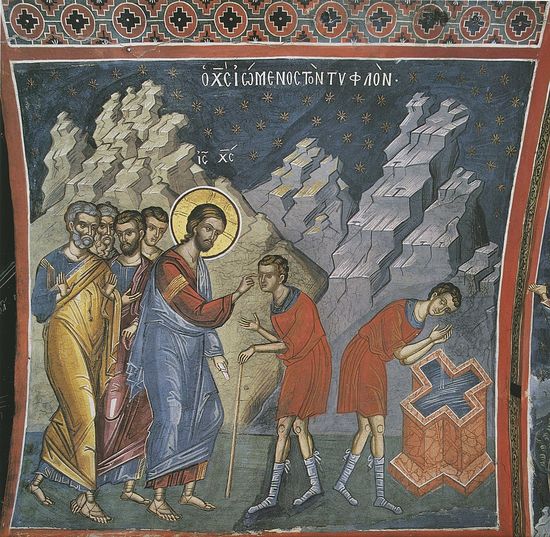 Tractate 44 on the Gospel of John
Tractate 44 on the Gospel of John
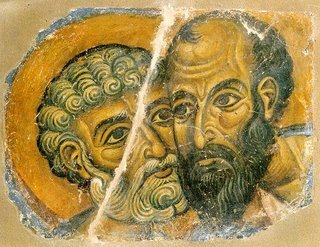 As the word of God testifies, the Apostles occupy a special place in the Church—Let a man so account of us, as of the ministers of Christ, and stewards of the mysteries of God(1 Cor. 4:1).
As the word of God testifies, the Apostles occupy a special place in the Church—Let a man so account of us, as of the ministers of Christ, and stewards of the mysteries of God(1 Cor. 4:1).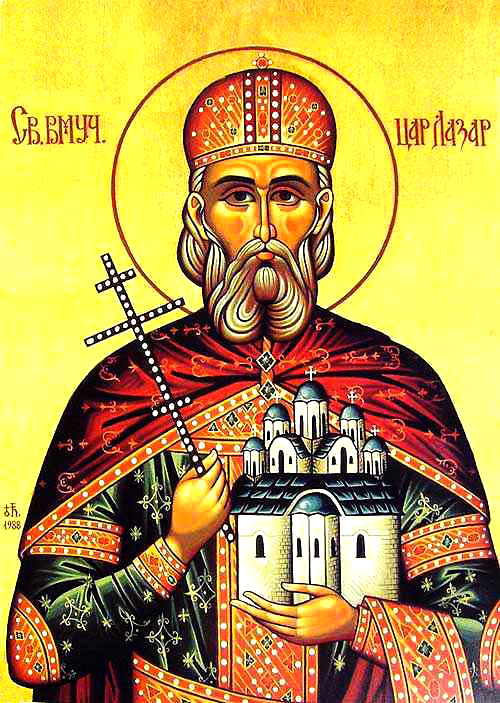
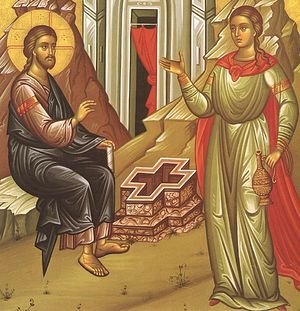 Homily 33
Homily 33 Our Lord Jesus Christ is without question God above all creatures. His Divine nature sufficiently manifested itself in the deeds that nobody except Him was able to do: to resurrect the dead, to cast out demons, to have power over the matter of the created world… Yet, all the same, Jesus was a real person and not a spirit.
Our Lord Jesus Christ is without question God above all creatures. His Divine nature sufficiently manifested itself in the deeds that nobody except Him was able to do: to resurrect the dead, to cast out demons, to have power over the matter of the created world… Yet, all the same, Jesus was a real person and not a spirit.